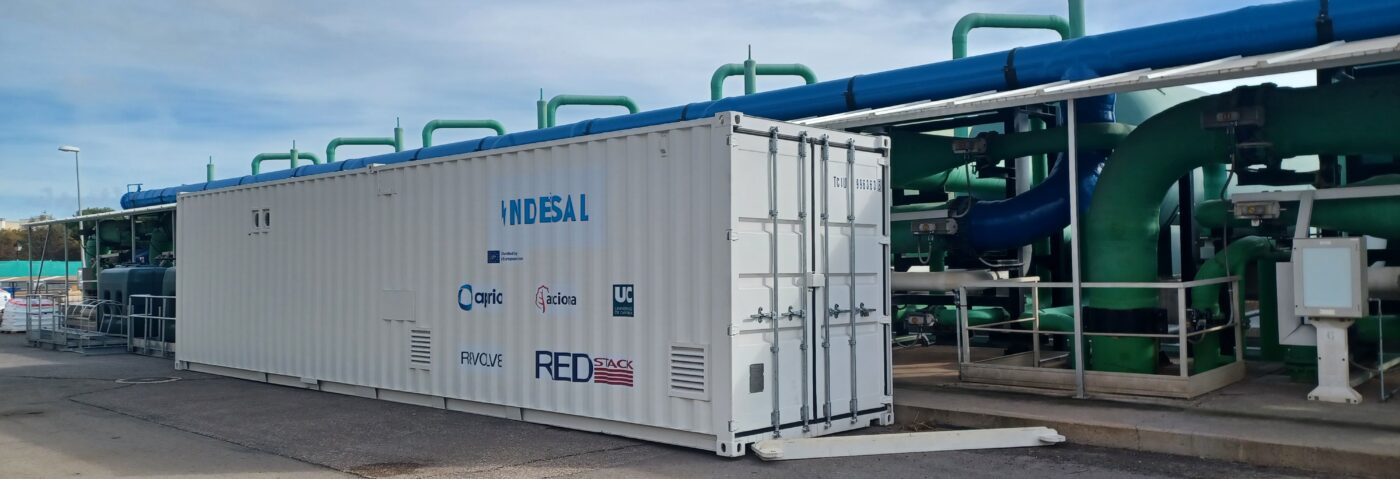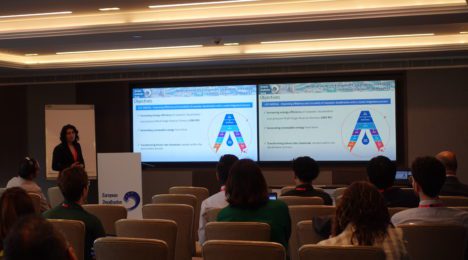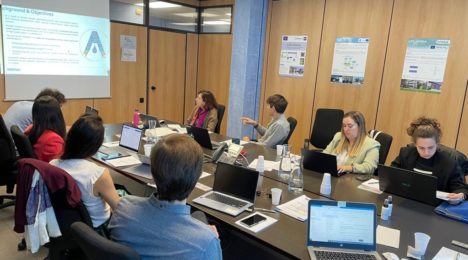ACCIONA, the project coordinator for LIFE INDESAL, started 2024 with a significant milestone by installing the LMS RO unit for the pilot plant located in San Pedro del Pinatar, Murcia, Spain. This pilot plant represents a pioneering initiative aimed at showcasing real-scale seawater reverse osmosis under actual environmental conditions.
The LIFE INDESAL project aims to demonstrate pilot-scale seawater desalination, operating at 10 m3/h, amidst real environmental conditions. The pilot unit (PU), fully automated and equipped with online sensors and analysers, integrates three innovative technologies. These technologies enable continuous operation for two years while closely monitoring and controlling the desalination processes.
The primary objective of the pilot plant is to gather valuable data on performance, which will inform the projection of a 450,000 m3/d seawater reverse osmosis (SWRO) plant incorporating the LIFE INDESAL solution. Furthermore, the project seeks to assess its environmental impacts across different categories and compare them to those of conventional SWRO plants, thereby quantifying the associated benefits.



The LIFE INDESAL project adopts an energy-efficient and circular approach to seawater desalination by integrating three cutting-edge technologies:
- Low-Pressure Multi-Stage Reverse Osmosis (LMS RO): LMS RO is a new way to remove salt from water that uses less energy by reducing the force needed to push water through filters. This means it’s more efficient and saves power compared to traditional methods.
- Reverse Electrodialysis (RED): This technology uses salty water leftover from the desalination process to generate electricity, which is then used to power the desalination plant. By turning waste into energy, it helps make the desalination process more sustainable.
- Electrodialysis with Bipolar Membranes (EDBM): EDBM helps create chemicals needed for the desalination process, like sodium hydroxide and hydrogen chloride, right within the plant. This reduces the need for buying these chemicals from outside, making the whole process more efficient and eco-friendly.
In parallel, LIFE INDESAL partner Apria is making significant progress in advancing desalination technology. On January 2024, Apria continued the construction of the RED and EDBM pilot plants, which are set to seamlessly integrate with the LMS RO unit at the LIFE INDESAL pilot plant in San Pedro del Pinatar, Murcia, Spain.
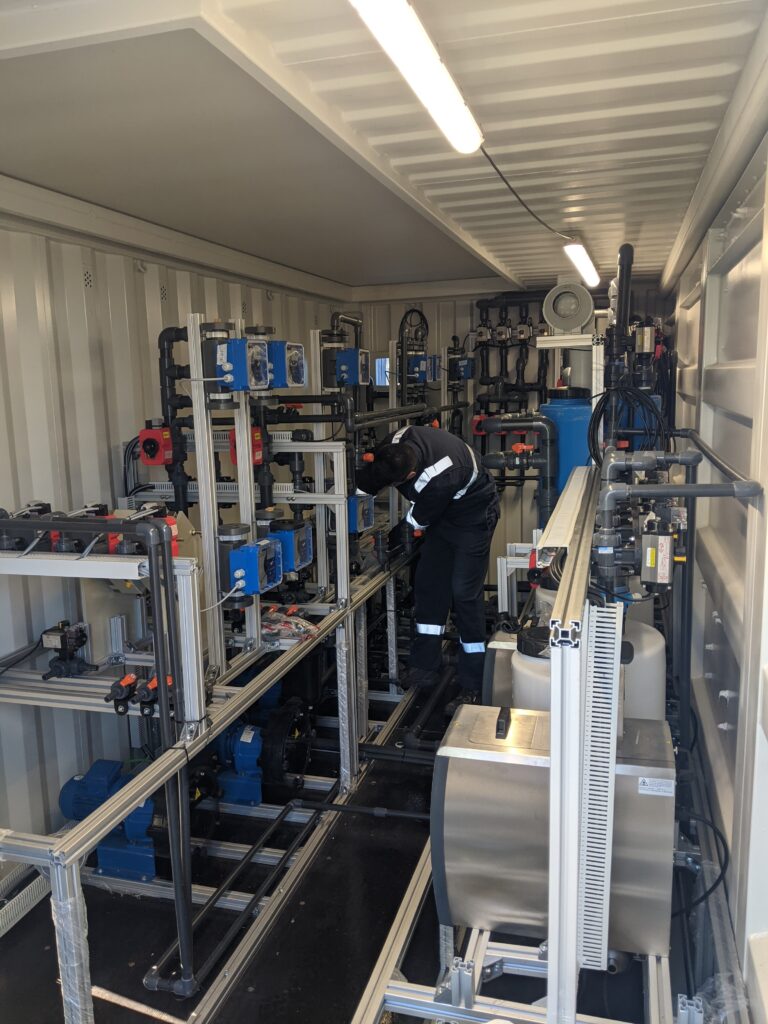
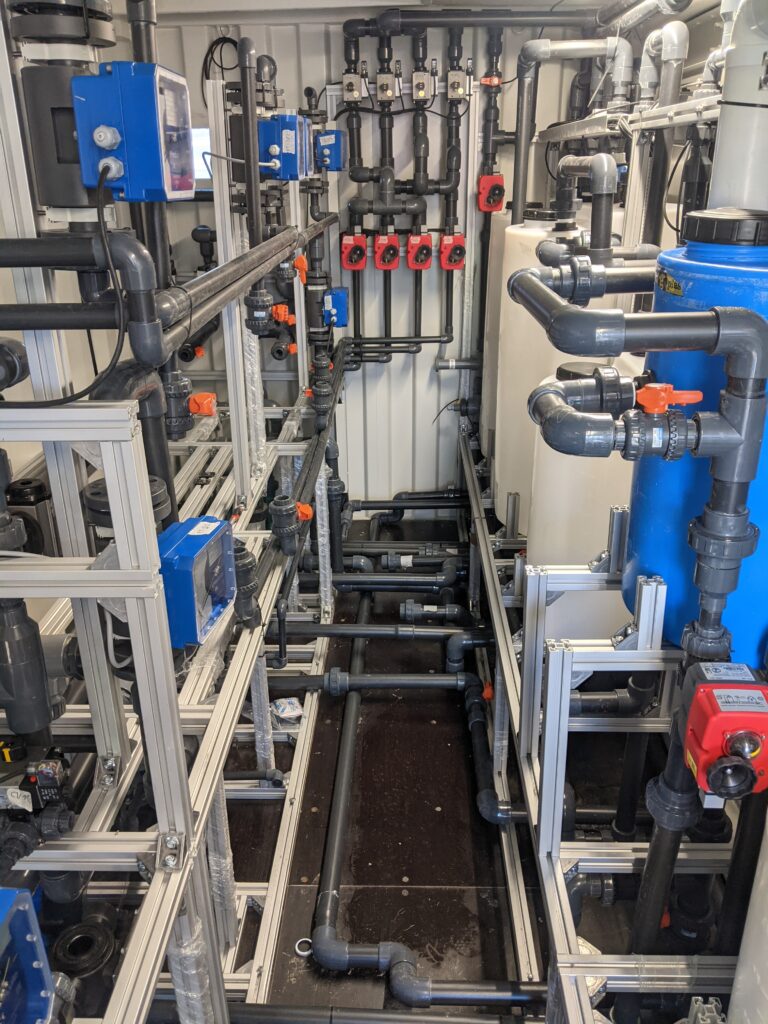
As developments unfold, the world awaits groundbreaking advancements in desalination technology.
